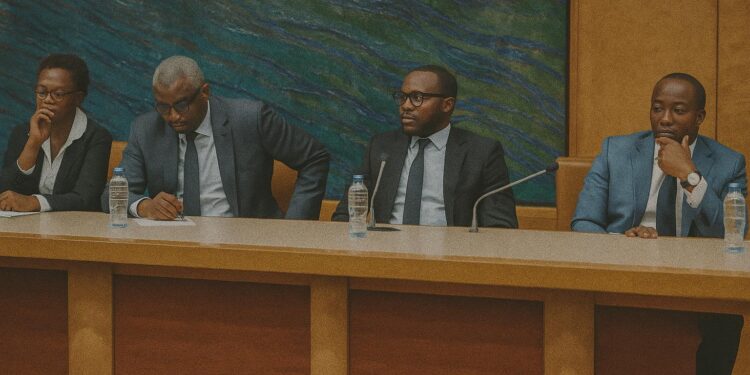Limited Exposure in Raw Trade Numbers
Official customs data compiled by the Central Bank of Central African States indicate that barely two percent of CEMAC exports are destined for the United States, a figure that pales in comparison with the European Union and China. On the surface, therefore, Washington’s unilateral tariff hike of ten to thirteen percent on selected CEMAC goods may appear to be a footnote in global trade statistics. Yet, as several analysts from the African Development Bank cautioned in recent interviews, the absolute magnitude of the flow matters less than the signal it sends about a shifting global commercial environment.
Parsing the Numbers Beyond Percentages
Although the share of exports is modest, the composition of those exports is heavily concentrated in hydrocarbons and timber. In 2023, petroleum from Congo-Brazzaville alone represented nearly seventy percent of the sub-region’s dollar earnings from the United States. Even a marginal decline in realised prices linked to higher duties could erode fiscal buffers that remain essential for public-investment programmes across the six member states. The timber industry, a strategic employer in Gabon and the Central African Republic, faces a similar arithmetic: narrow margins meet higher entry costs.
BEAC’s Pre-emptive Economic Diplomacy
Mindful of these nuances, the BEAC convened its first digital Economy and Finance Day on 24 July. According to Governor Abbas Mahamat Tolli, the intent was not only to alert treasuries but also to cultivate a common negotiating posture vis-à-vis Washington. Participants, including former WTO appellate body members, underlined that contesting the legality of the duties would require time the region may not have. A more pragmatic tack, they argued, consists in strengthening macro-prudential policies and accelerating foreign-exchange reserve pooling, an area in which Brazzaville has already exhibited discipline acknowledged by the International Monetary Fund.
Sectoral Vulnerabilities: Oil and Timber in Focus
Energy economists at the Oxford Institute for Energy Studies remind that Congo-Brazzaville’s crude blends are sold on long-term contracts indexed to Brent. Any tariff-induced discount negotiated by U.S. refiners could shave budget revenues just as governments scale up social spending. In the forestry sector, exporters interviewed in Douala concede that the additional cost per cubic metre may accelerate a supply shift toward Asian buyers, thereby weakening price discovery and transparency.
Diversification Lessons from the Gulf
During the virtual forum, speakers repeatedly invoked the Gulf States’ trajectory from raw-commodity dependence to downstream processing. Equatorial Guinea’s ongoing gas-to-chemicals initiative and Congo-Brazzaville’s Special Economic Zones were singled out as demonstration projects. By capturing more value locally, officials contend, tariff shocks become less debilitating. The argument dovetails with the African Continental Free Trade Area, whose gradual tariff dismantling offers CEMAC a hedge against extra-regional headwinds.
Quiet Channels with Washington
Diplomatic sources in Brazzaville confirm that discreet discussions have been opened with the Office of the United States Trade Representative to explore product-specific exemptions. Such calibrated engagement, they stress, avoids the symbolism of open confrontation while protecting hard-won credibility on governance reforms. In parallel, American investors active in Congolese infrastructure have privately signalled that an accommodative stance could unlock fresh capital for renewable-energy corridors, thereby broadening the bilateral agenda beyond tariffs.
Strategic Outlook for Central African Capitals
Looking ahead, the region’s vulnerability lies less in the immediate tariff bill than in a broader return to protectionism among major economies. To that extent, the BEAC’s call for coordinated monitoring mechanisms appears prescient. Should further duties proliferate, a shared early-warning system could guide monetary adjustments, contain imported inflation and safeguard the common currency’s peg. Equally, intensified intra-African commerce would dilute exposure to any single market. Congo-Brazzaville’s leadership, by actively championing these regional safeguards, positions the country as an interlocutor of choice both within CEMAC and beyond.











































